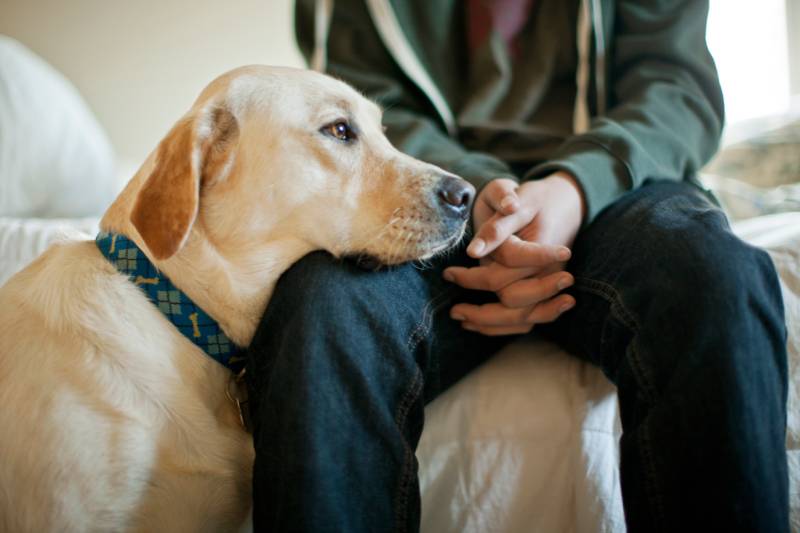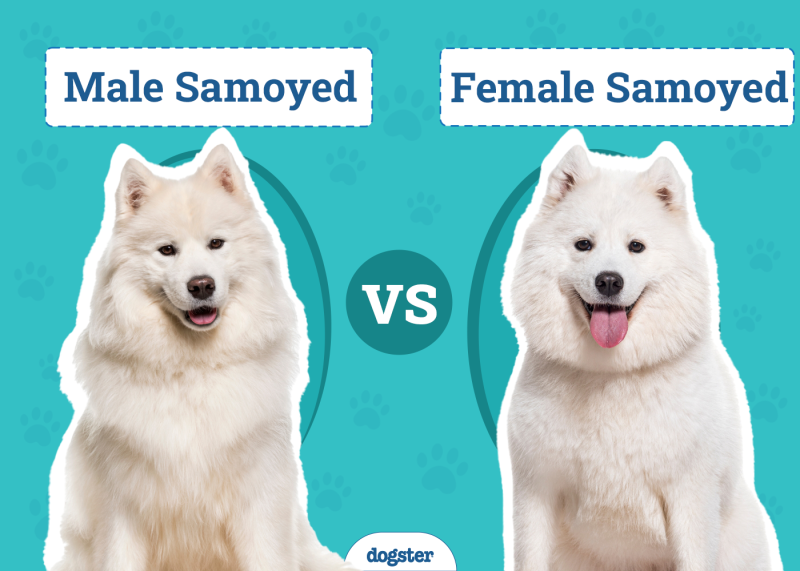In this article
Empathy is a fundamental part of our behavior. Whether learning about the past or navigating a social situation, we use empathy to connect with others and guide our reactions. But do dogs feel the same way? It’s clear that dogs feel some emotions, but up until recently, most researchers thought empathy was beyond dogs. But that consensus is changing. The question isn’t fully settled, but recent research shows that dogs feel empathy or at least something like it.

Emotional Theory & Empathy
Emotions are tricky to study, especially in animals. How do you know what an animal feels when you can’t talk to it? For a long time, researchers have agreed that dogs feel simple emotions, like excitement, sadness, anger, and anxiety. But more complicated ones—like shame, guilt, and empathy—are still up for debate.
In humans, babies develop all the simple emotions by the time they’re a few months old. But more complex emotions don’t set in so quickly. Those take until they are a few years old. The prevailing theory has been that dogs never develop the ability to feel these emotions, including empathy. Instead, many researchers thought dogs became distressed at signs of distress, like a baby crying when they hear another baby’s cry. But new research is pointing to doggy emotions as being more complex.
Studies on Empathy and Distress
One of the most important recent studies on empathy was a 2017 study in which dogs watched their owner and a stranger both work on a puzzle. One person would talk or hum, and the other would cry. If dogs felt empathy, the researchers expected that they’d attempt to comfort whoever cried—especially if it was their owner. If they just became distressed, they’d likely run to their owner for comfort no matter who was crying. In the end, not every dog responded to the tears. But many dogs did try to comfort the crier, no matter who it was.
A different study a year later measured the stress levels of dogs when watching their owner crying. They found that most dogs were distressed and that many went to their owners faster when their owners were crying. But the interesting result was that dogs who tried to help their owners were often less stressed than dogs who didn’t. That shows that the responses weren’t just dogs being stressed by crying. Instead, the researchers theorized that all the dogs felt empathy, but some dogs had better emotional control that let them spring into action.
A final study on dog behavior looked at dogs’ reactions to recorded human and canine sounds. This study found that dogs have a stronger reaction to negative sounds (like cries and whines) than positive and neutral sounds. It also found that dogs react more strongly to recordings of people and dogs in their households.


Last Thoughts
Putting all those studies together, it’s pretty clear that dogs experience empathy. They care about whether other people and dogs are distressed, and many dogs will try to help. They also care more about others if they already have a bond with them. That’s true of humans, too—most people are more empathetic to loved ones than strangers.
We can also tell that emotional development varies from dog to dog—some dogs are more empathetic than others, or at least more willing to act on it. Although we don’t know exactly what goes through your dog’s mind when you’re having a good cry, it is safe to say that your dog really does care.
Featured Image Credit: Erickson Stock, Shutterstock



















